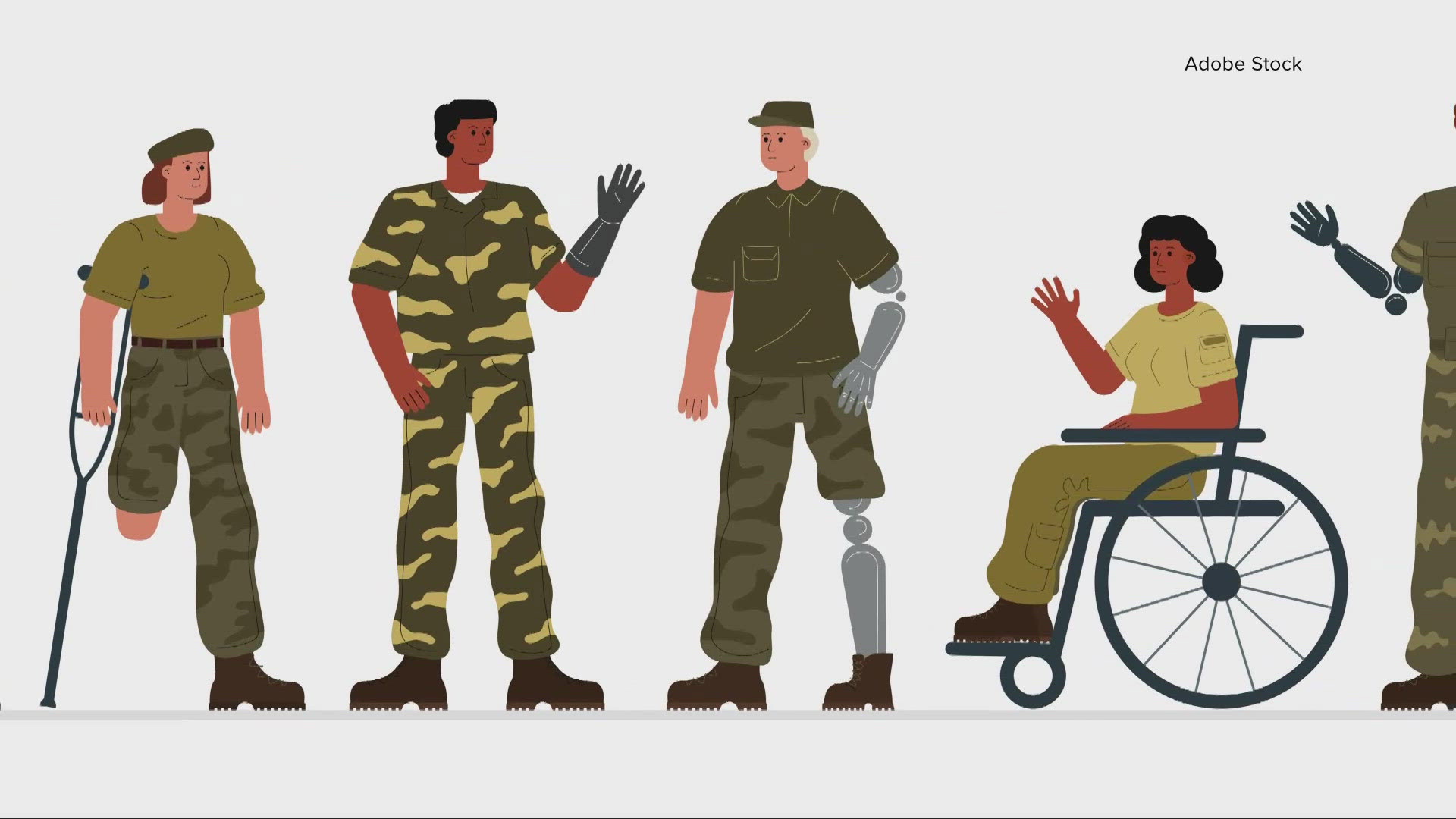MAINE, USA — When someone who has served their country leaves the military, they have access to healthcare and other services through the Department of Veterans Affairs. According to Tyler Hadyniak, an attorney who works with veterans, too many aren't taking advantage of those benefits or don't quite understand them.
Hadyniak focused on what he thinks is an underutilized service, what he calls a secondary service connection.
"It's where a veteran already has a medical condition that VA can see is due to their active duty service, but then that medical condition has caused another medical condition later in life," he said.
"So the very common example here is a veteran is service connected for right knee pain, maybe it was overextended in service or injured it somehow, and they've gone along for years or decades hobbling on their right knee but then compensating with their left knee" Hadyniak explained. "Well, under a secondary service connection theory, a veteran can try to get that left knee service connected."
That connection can be used for multiple conditions connecting to things like obesity, or even social isolation, he said.
"That consistent knee pain causes a veteran to be inactive for their post service life. That inactivity could cause obesity, then that obesity causes hypertension," Hadyniak explained. "So, in this example, the hypertension could be secondarily service connected to knee pain."
"A veteran with hearing loss is more likely to develop dementia than one who does not have hearing loss," he said. "So you could really brainstorm a lot of examples, if a veteran has a psychiatric disorder like PTSD, maybe one of their primary symptoms is social withdrawal, social isolation. Well, there's medical literature out there that links social withdrawal over the course of many years to dementia onset."
The question is, how difficult is it to connect those conditions? Well, Hadyniak says it's not a "cakewalk," but the law is on your side.
"VA disability law is surprisingly pro-claimant. So the burden of proof here to prove that one medical condition is causing another, for example, is that the causation is at least as likely as not," he explained. "It takes the medical opinion of a doctor or other medical professional, and knowing how to use the law."
This where an attorney who specializes in veteran disabilities can help. To reach out to Tyler Hadyniak, click here.
You can also find more resources here.

